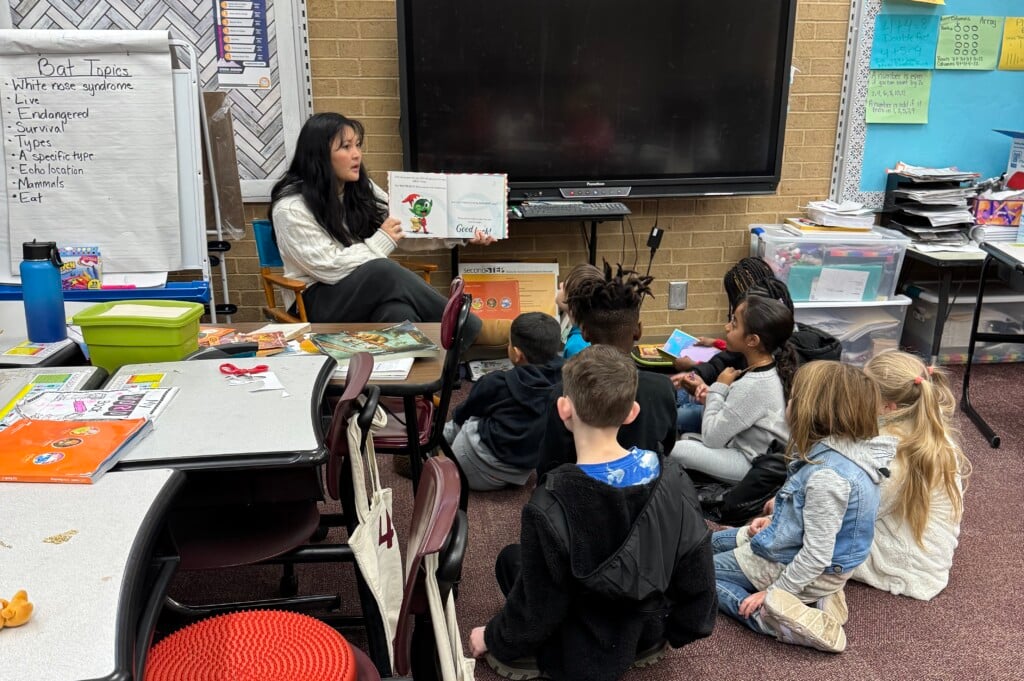Shermya Jackson: Catching Up with A Former Tulsa Kid

Shermya Jackson, now 17, appeared in this column four years ago. Since we featured her at age 13, we have learned that Shermya attended Booker T. Washington High School, where she graduated at age 16. She continued her education at Tulsa Community College (TCC), completing her first semester with a 4.0 GPA. Shermya plans to attend Rogers State University in the fall to pursue a bachelor’s degree in nursing. While her accomplishments are impressive enough, Shermya has completed these goals while fighting a serious, chronic disease.
TK: Why did you choose the educational path that you’ve been following?
Shermya: I plan to go on to graduate school to get my master’s degree in nursing. My career goal is to become a psychiatric mental health nurse practitioner. As long as I can remember, I have wanted to be a nurse. I helped my mom take care of my grandmother and grandfather, checking their vitals and giving them their medications. Both my grandparents unfortunately passed away this past year. It meant a lot to me to be able to help them, and I want to help others in that same manner.
I want to specifically be a psychiatric mental health nurse because I know the importance of having a proper diagnosis and treatment when it comes to your mental health. Dealing with mental health issues stems from my lupus diagnosis. It is very important to get the proper diagnosis and treatment to work on your mental as well as your physical health needs.
TK: What is lupus, and how has it impacted your life?
Shermya: Lupus is a chronic, lifelong disease of the immune system. Immune cells attack the body’s healthy tissues, leading to inflammation, illness and tissue damage. It causes inflammation (swelling), organ damage and pain in any part of the body. It can cause damage to the skin, joints and internal organs. Lupus can affect your kidneys, heart, lungs, brain, central nervous system, blood and joints.
Lupus has impacted my life, good and bad. Learning to cope with the disease has not been easy. I experienced a variety of emotional reactions, including denial, fear, frustration, anger and anxiety. I was very upset and depressed. My parents sent me to therapy over the years to help me learn coping skills and to deal with depression and anxiety. I have suffered lots of pain and was tired and still have issues with fatigue. I wake up tired no matter how much sleep I get. There are some days I can’t even get out of bed and have to stay home from school and miss events and activities. I missed an average of 30 to 40 days of school a year, but receiving a medical accommodation allowed me to complete school. There were several times I almost had to withdraw and homeschool because I had missed so much school due to being sick or being hospitalized, but I wanted to finish school at Booker T. because my parents, aunts, uncles and cousins went there, and I wanted to graduate and be a Booker T. Washington Hornet.
I am not going to lie, school was very hard at times because Booker T. is a high-performing, college preparatory school, and it was very easy to get behind. Even when I was sick at home, I had to do my work. There were times when I was in the hospital that I would bring my laptop and do my work.
I had a goal, and I wasn’t letting anything stand in my way. Friends would take notes for me, and teachers would communicate with me and allow extra time to complete my assignments. I didn’t always receive understanding and compassion from everyone, especially other classmates because I was absent a lot, and some people couldn’t understand how I was passing and why I was receiving accommodations. Some people thought I was skipping. They didn’t understand what I was going through. Some teachers didn’t understand either and were not accommodating. Thank goodness for those students and teachers who did understand and wanted to see me succeed.
The daily management of the disease consists of eating properly, getting adequate sleep, taking my medication and trying to stay stress-free. I take about 10 pills per day and have 10 doctors/specialists that I see, several of which are in OKC.
What has been the most difficult part of the disease is having to give up playing volleyball competitively. My legs would hurt severely after just practicing. My doctor said there was too much pressure on my joints and recommended I stop playing. It was very hard to give up because I had envisioned myself playing in college.
The good thing I have experienced is coming in contact with people who truly care about me and want to see me be successful. Those people help me make it through the rough times. I look to them for support. I have been recognized several times for my strength and resilience to fight and not give up, which has meant a great deal to me because I look to inspire others going down a similar path.
TK: Who inspires you?
Shermya: My mom inspires me because she also has lupus and has had it since she was a child. She understands what I am going through. She motivates me to keep pushing on to stay strong and not give up, and to believe that I can do anything that others can do. I might just have to do things a bit differently or allow extra time to complete them. My parents in general are a great source of inspiration. They have taught me valuable lessons that will take me far in life and have been the biggest support system a person can ask for.
TK: What advice would you give to others who are battling an illness or other hurdles in life?
Shermya: The advice I would give to others would be that your illness doesn’t define who you are. You are not your illness. You are not a victim; you are a survivor. Never let your illness control you. Lupus is just one part of my life. I am still of value and still have something to offer the world and so do you. Keep striving to reach your goals, no matter the obstacles you encounter. Stay positive and don’t focus on what you can’t do but focus on what you can do. Most importantly, don’t suffer in silence. Help is out there to take care of your mental health.
TK: What keeps you moving forward despite the obstacles?
Shermya: The thing that keeps me moving forward is my faith. I pray a lot and know that if God brought me to it, he will bring me through it. My belief system keeps me moving forward. I believe in myself, and I know I am just as capable as the next person in doing whatever needs to be done.
I have a strong support system of family and friends that I lean on when I need to. Never be afraid to ask for help from family, friends, or a mental health advisor.
Some specific things I do to stay positive are to pray, go to church, work out at the gym, stay hopeful, possess a positive attitude, deal with my emotions by going to counseling, spend time with positive people, and avoid negative thoughts and negative people. I am grateful for what I have and say positive affirmations to myself daily. I focus on what I can change and accept the things I can’t. I realize that difficult times are a part of life and that things will get better. It’s all about how you deal and cope with those things.
TK: What is your favorite thing to do in Tulsa?
Shermya: My favorite thing to do in Tulsa is go to the mall. I love shopping at places like Urban Outfitters, Five Below and dining at restaurants like Olive Garden and Texas Roadhouse. I love going to the movies, going to Gathering Place when the sun goes down, going to Main Event, going to sporting events and bowling.
TK: What is a fun fact about you?
Shermya: I am a shoe and clothes fanatic. I love animals. I would like a snake, a lizard and a gecko when I have my own house. My parents said lol. I have a cat and a dog, and they love each other.




